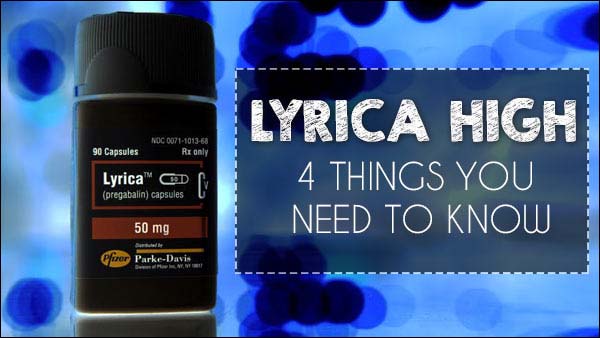Concerned about the reports of a Lyrica high?
With many prescription drugs, the possibility of abuse is a side effect that doesn’t get much attention – until it’s too late. Of course, some reports of abuse are overstated or unfounded. But unfortunately, the possibility of getting high on Lyrica is all too real.
If someone close to you has been prescribed Lyrica, it’s important to know the warning signs of abuse so you’ll know what to watch for. In this guide, we’ll give you what you need to know about the Lyrica abuse potential. Keep reading for the answers you’re looking for.
1. What is Lyrica?
Lyrica is a brand-name version of the generic drug pregabalin. It treats a variety of disorders, from generalized anxiety to fibromyalgia, and it’s also often used to treat epilepsy.
When combined with other drugs, it has an even broader treatment potential. Pregabalin was created in the ’90s with a focus on treating seizures and convulsions. In the years since, researchers have discovered the many other uses for the drug.
Like many drugs, it comes with a number of relatively harmless side effects. Lyrica can cause dry mouth, weight gain, and lethargy. However, it also has some more serious effects: it can mess with motor control, and cause confusion and memory issues.
Perhaps most concerning, though, is the fact that it can also be used to create a high similar to that of benzodiazepines. And, if someone takes high doses of Lyrica for long enough, they may become addicted.
Since the generic version was just released in the U.S. this year, pregabalin is more accessible than ever before. This is great news for those who have a prescription. However, this also makes people much more likely to abuse the drug, since it’s now cheaper and more accessible.
2. Is There a Lyrica High?
Lyrica has a fairly low risk for addiction, compared to other drugs that can get you high. Still, the potential for abuse is definitely there.
Pregabalin, when taken in high enough doses, provides a relaxing sensation that may attract people to take it when they don’t have a prescription, or to take more than they should. The high isn’t as powerful as other pain-relieving drugs like oxycodone, which also offer a euphoric sensation. Still, the mild high combined with the relief of pain and anxiety can be addictive for some.
For many people, the ability to become free from anxiety or pain for a short while will lead them towards addiction. Although people won’t develop a chemical dependence on pregabalin, they can become psychologically dependent on its effects.
If you know someone with a history of addiction, or an addictive personality, who has been prescribed Lyrica, you’ll definitely want to watch out for the warning signs of abuse.
3. Can You Mix Lyrica and Alcohol?
Many drug addictions and abuse situations start on accident, not on purpose. One thing people who’ve been prescribed Lyrica may not realize is that they shouldn’t take this drug with alcohol.
Even small amounts of alcohol can change the effects of the drugs, and heighten the sense of “high.” Lyrica is a central nervous system depressant, and so is alcohol. When you take two substances with such similar effects, each one becomes stronger than it would be on its own.
People who drink alcohol while taking Lyrica might experience poor coordination, impaired judgment, sleepiness, and sedation. While each substance can produce these or similar effects alone, the effects become much worse when taken together.
Drinking alcohol with Lyrica also makes people more likely to abuse the prescription drug, since its effects can become more potent and appealing. The intoxication may feel more like euphoria when the drug is mixed with alcohol, making the prospect of taking more of it more appealing.
Combining two nervous system depressants can also be dangerous in other ways. If you depress the nervous system too much, the results can be deadly – respiration can slow down or even halt altogether. This type of overdose is similar to an opioid overdose.
4. Who is at Risk for a Lyrica Overdose?
Even if the overdose isn’t life-threatening, people may end up taking more Lyrica than they should and even up developing a dependency.
There are many myths and fallacies surrounding prescription drug abuse. The person most at risk for abusing Lyrica might not fit your idea of what a drug addict looks like. In fact, many people who abuse Lyrica might not realize what they’re doing when they start.
Since the Lyrica high is subtle, people who already use drugs heavily aren’t likely to seek it out. The high won’t hold much appeal to someone used to much stronger drugs. However, to someone with no experience with drug abuse, the high can hold a lot of appeal.
Responsible, professional adults can quickly develop a Lyrica dependency without realizing what’s happening. They might start to take incrementally larger amounts to capture the relaxing effects of the drug. Soon, this turns into a psychological addiction, leading them to seek out higher doses.
Lyrica has been said to have effects similar to Valium, another drug with mild effects that are all too easy to abuse.
What to Do if You See the Signs of Abuse
How can you tell if someone close to you is abusing Lyrica, and what should you do if you see the signs?
There are many different signs of addiction or abuse that can manifest in different ways. A user might feel withdrawal symptoms when they stop taking the drug, or stop feeling the effects of the drug if they don’t take a higher dose. If you notice unusual behavior in someone taking Lyrica, such as increased drowsiness or confusion, this is a warning sign.
If you or someone you know is abusing the Lyrica high, it’s time to seek professional help. Start with our resources on drug addiction here.













